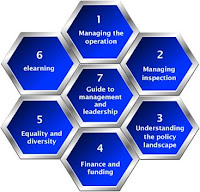
Today I’ve received my Autumn copy of Inform, a JISC publication which raises awareness of the use of ICT to support post 16 education in the UK. To me, this one was particularly important as it explored the use of Open Source Software, an area which is becoming increasingly important for the Work Based learning Sector.
In its article “
An open and shut case” it talks more about the “…big market for an alternative to costly proprietary software that also provides long-term sustainability, a sense of community and a better fit with user needs.”
Why is this important to the WBL sector?
Open source software is already in use in most UK universities and colleges, whether in the context of mail servers, teaching systems or student desktops. It is also increasingly being considered by WBL providers who are looking to reduce licence costs as part of their ILT strategies.
As
noted by JISC, this is possibly for the following reasons:
- ‘No licence surprises. Open source software licences are free and perpetual, so a licence fee increase cannot happen.
- No incentive for theft. With open source software students can use and copy the software legally
- The ability to tailor the system completely to local needs.
- With open source, if a provider needs the software customised, they can have the program changed, either in-house or by a third party’.
At a recent ALP conference, Derrin Kent, a West Midlands based consultant, delivered a presentation which showed WBL leaders how they could support their ILT strategy with Free Open Source Software (FLOSS). In this he also outlined how the use of a variety of FLOSS Applications can dramatically help WBL leaders to develop different aspects of learning delivery / business performance.
I thought his presentation was timely, because, as this article also points out, "..although institutions now have higher levels of experience of open source compared to three years ago, there remains a great deal of confusion about how providers can make the most of OSS.”
This is something we at the Regional support centre are also aware of, and we are currently planning activities that will raise awareness of the possibilities. These will also serve to highlight why it is an important consideration for the work based learning sector. I hope that you will watch this space for dates and details as they arise (or keep an eye on our brand new website's events page).
Until then the following links might also prove useful in terms of background reading (or if you have specific questions about the use of Open Source please don’t hesitate to contact me).
· Open Source Software Briefing paper
· Open Source Software Advisory Service
· Why the Guardian thinks “Ignoring open source is costing us dear”
 Earlier this year, the Centre for Excellence in Leadership (CEL) launched its online toolkit, designed to meet the needs of work-based learning (WBL) providers. Since then they have run a series of regional launch events that offer an introduction to the WBL toolkit, and are suited to those individuals responsible for the leadership of e-learning within the organisation.
Earlier this year, the Centre for Excellence in Leadership (CEL) launched its online toolkit, designed to meet the needs of work-based learning (WBL) providers. Since then they have run a series of regional launch events that offer an introduction to the WBL toolkit, and are suited to those individuals responsible for the leadership of e-learning within the organisation.






 The purpose of the ConnecT programme is to develop information and learning technology (ILT) strategies in the work-based learning (WBL) sector and help extend and embed e-learning technology within organisations.
The purpose of the ConnecT programme is to develop information and learning technology (ILT) strategies in the work-based learning (WBL) sector and help extend and embed e-learning technology within organisations.

